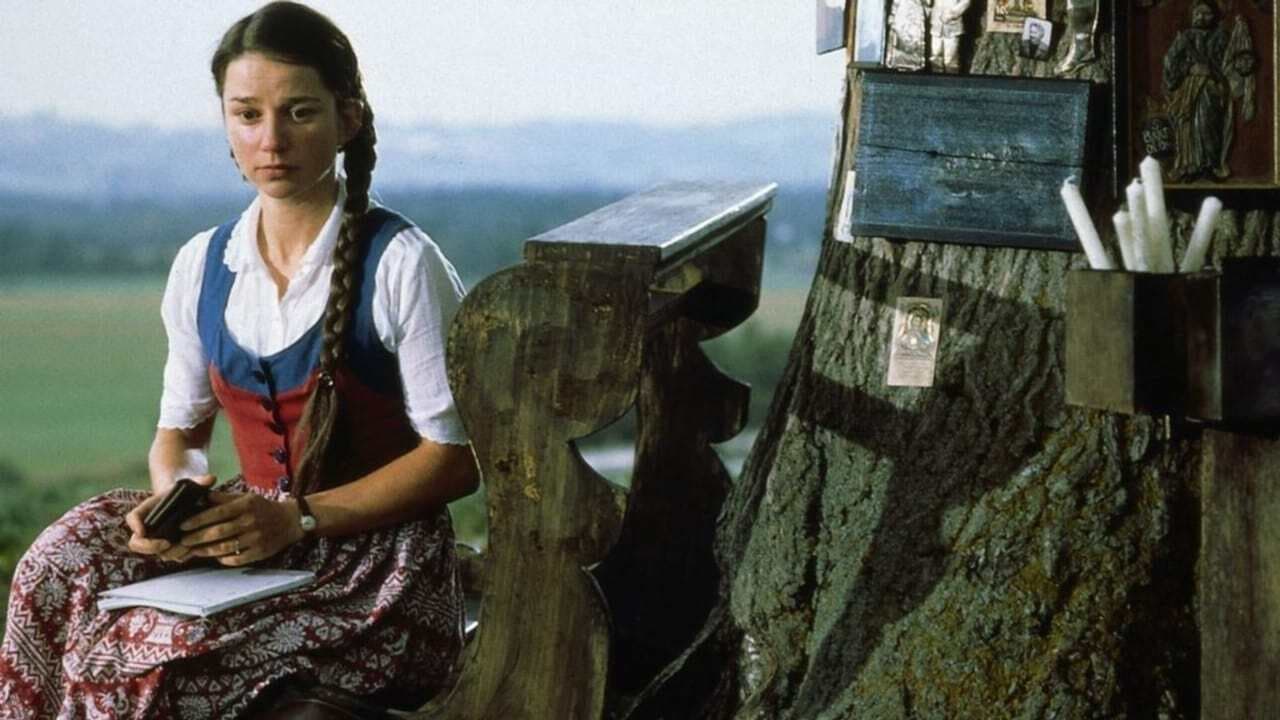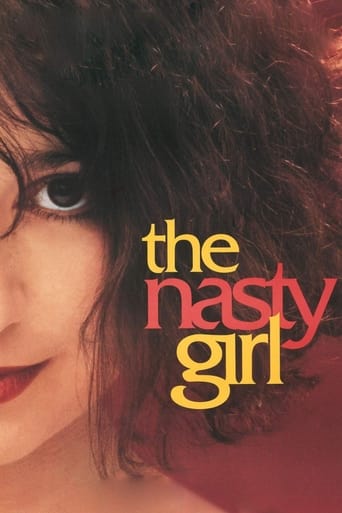

Entertaining from beginning to end, it maintains the spirit of the franchise while establishing it's own seal with a fun cast
... View MoreThe film creates a perfect balance between action and depth of basic needs, in the midst of an infertile atmosphere.
... View MoreThis is a small, humorous movie in some ways, but it has a huge heart. What a nice experience.
... View MoreAn old-fashioned movie made with new-fashioned finesse.
... View MoreWhen a young woman (Lena Stolze as a fictionalized version of Anna Rosmus) investigates her town's Nazi past, the community turns against her.Rosmus wrote her first book, "Resistance and Persecution - The Case of Passau 1933-1939", which was published in 1983. Undeterred by threats, she now wrote "Exodus - In the Shadow of Mercy", a book focusing on the plight of Passau's Jews during the twentieth century. Her work continued to cause unprecedented uproar as well as international praise. She was eventually forced out and moved to America.Lena Stolze is a perfect lead. She approaches the character an her world with a sense of wonder that anticipates "Amelie", though this material is much darker. The film, though light-hearted and innocent in many ways, does bring up an important point: it is not simply a matter of "erasing" or "forgetting" or "ignoring" history -- a community must actually confront it in order to move on.
... View MoreThe thrust of the movie, as I saw it, was the propensity of a society, any society, to conveniently 'forget' the details of its involvement with nefarious deeds carried out in its name. Much as the vast majority of American westerns tend to gloss over the true level of barbarism we so-called civilized members of society visited upon the 'heathen' Indians, the German town in question conveniently 'forgot' its level of involvement with the atrocities of the Nazi regime. Mädchen's true 'sin' was of revisiting the Nazi era and detailing the involvement of many of the town's leading lights with that regime and its atrocities.In toto, this film asks disturbing questions about society (any society) and its willingness to justify or simply forget 'inconvenient' truths and realities.
... View MoreGerman playwright Bertolt Brecht felt that theatre should teach the audience certain moral lessons, and to this end he developed a mode of presentation frequently described as "theatre of alienation"--a type of production in which the audience is never allowed to fully identify with the characters and their situations and is instead asked to critically observe the material and draw conclusions from it. For the most part, this is a style that works best on the stage--but director Michael Verhoeven uses it as a springboard for THE NASTY GIRL. And the result is one of the few instances in which these Brechtian concepts come successfully to the screen.The story is wickedly funny. A bright young lass, the daughter of two teachers, wins an essay contest--and when the next contest is announced she again decides to compete, this time with an essay on "My Hometown During The Third Reich," in which she plans to show how her small Bavarian town resisted Nazism. But few, even those regarded by the townfolk as heroes of that era, are willing to discuss it--and those that do provide conflicting information. She eventually gives up the project, but it continues to fester in the back of her mind, and some years later when she resumes her research with the idea of writing a book she discovers that the anti-Nazi heroes were not, perhaps, either anti-Nazi or heroic.The main thrust of the film centers upon Sonja's relentless battle against the powers that be to obtain access to documents from the Nazi era, and how civic leaders work to frustrate her--both by persistently dodging her demands for the material and by direct terrorism. But their resistance makes Sonja all the more determined, and she becomes willing to pay any personal price. Ultimately, she does arrive at some of the truth, only to discover that she has now been enshrined by civic leaders as a "hero" in an effort to silence her with praise.Director Michael Verhoeven presents the story in an odd mix of documentary and theatrical and realistic styles that mesh extremely well to create that famous Brechtian effect without ever actually seeming preachy. And leading actress Lena Stolze, as "the nasty girl" who accidentally drifts into the role of advocate for the truth at any price, is equally remarkable: she gives a very likable, bemused performance that draws the viewer in even while maintaining the necessary degree of detachment the style requires. Not all viewers will appreciate the film--some will find the subject too dark, others may not be able to buy into the style--but this is a brilliant film, and you owe it a chance. Strongly recommended.Gary F. Taylor, aka GFT, Amazon Reviewer
... View MoreUsing Brecht's idea of Epic Theatre, Michael Verhoeven creates a stage upon which audiences can learn from the past, and critique such instances from World War Two and Nazi Germany through the main character Sonja's struggles. Brecht wanted Epic Theatre to use history and let audiences apply it to the present. This type of theatre makes you aware that you are watching something staged, so that you analyze the situation rather then feeling the same emotions of the characters. Verhoeven does this very nicely using a few alienation effects (also know as vefremdungs effekt). One scene taking the walls down of Sonja's living room and having it float through town while people anonymously call and threaten her family. Here the idea of Foucault's panoptican (an instrument that can see everything) comes into play as well. Sonya has no anonymity from the public, which is made up of the church, the government, the media, and the fifth establishment (the elder generation that serve as a link from the past to the present), yet she cannot identify any of them specifically. Later on again in a different sequence, Verhoeven brings back the walls. It is here that Sonja learns some names she can use to defend herself, and the walls of defense are back. Bringing back the walls also helps alarm the audience, just in case they were becoming too comfortable without them.Another part of the film is Sonja's family. In many scenes the children are seen crying and the father, Martin, tending to them and getting rather flustered. At one point he yells at Sonja telling her how her children would like their mother. Later on at the end of the film we learn that he has left her. Verhoeven plays on Sonja's obsession for finding the truth as a distraction from her family, yet there are parts where she still says she needs to stop, for the safety of her family because of threats. I think the scenes of neglecting the family are overdone to not show the point that Sonja is a bad mother, but that she wants her children to grow up and learn to love their Heimat (homeland), which during WWII was given a negative political term. She wants to make things better for her children so they don't grow up learning all of the corrupt things the her town has been covering up.The Nasty Girl is a clever and great cinematic film that makes you think, rather then feel. As the viewer you walk away learning something.
... View More